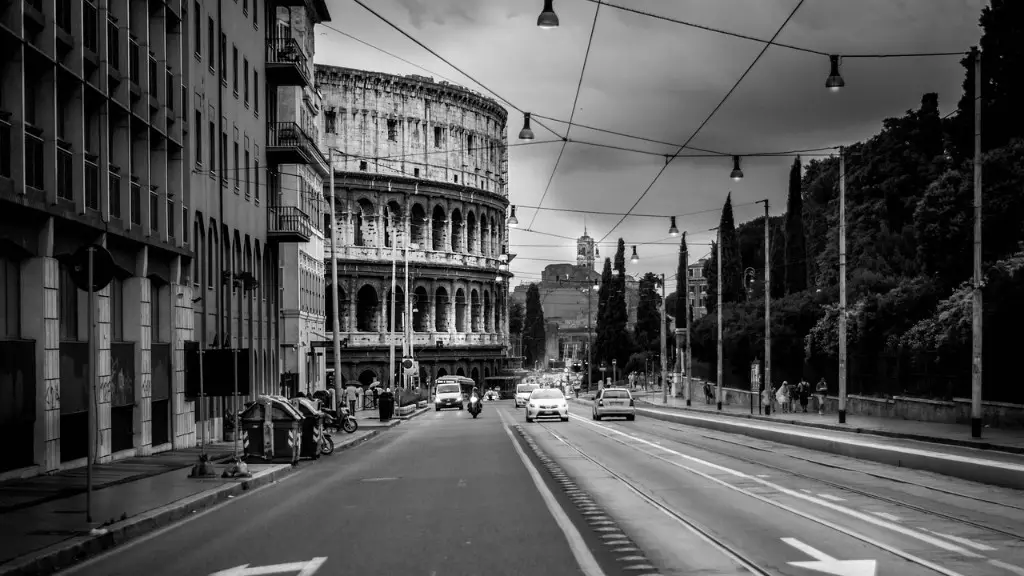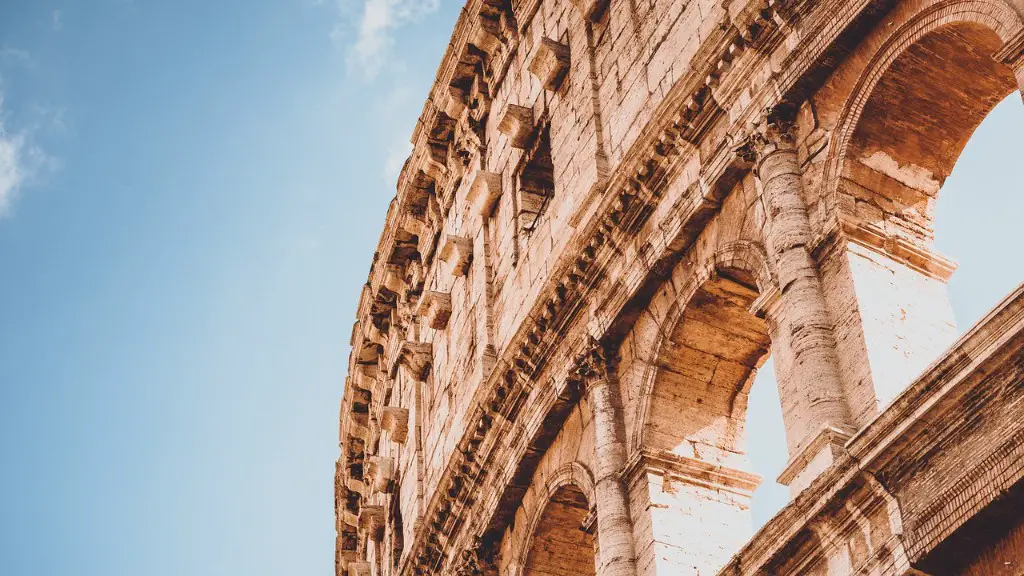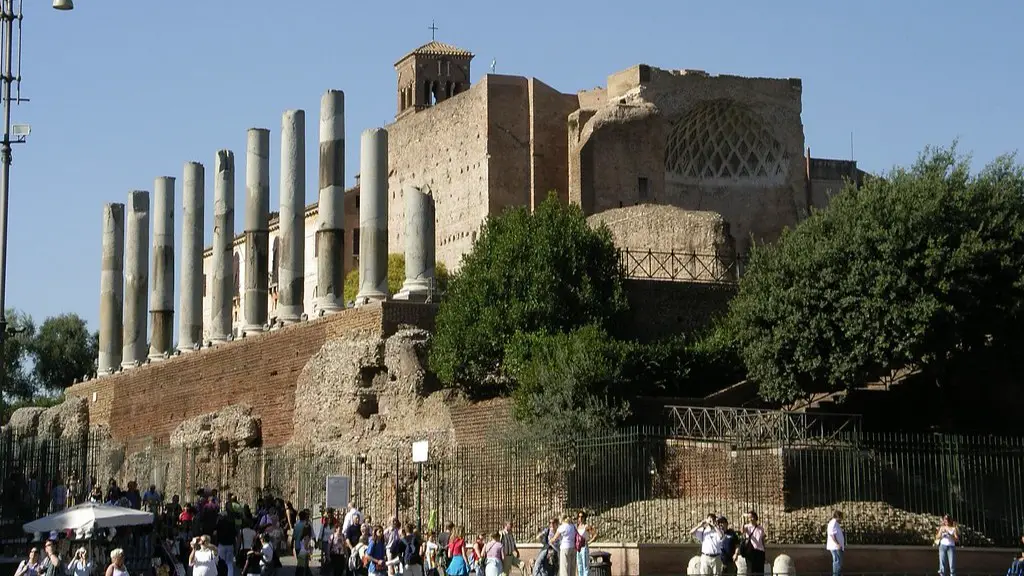The ancient Romans had a complicated relationship with Sicily. While the island was a vital part of the Roman Empire, it was also a place that was associated with some of the worst aspects of Roman rule. As a result, many Romans had a complicated mix of feelings towards Sicily and its people.
There is no definitive answer to this question. Some historians believe that the ancient Romans did not have particularly strong feelings about Sicily one way or the other, while others believe that the Romans may have looked down on Sicily and its inhabitants.
What did Romans call Sicily?
Sicilia was the first province acquired by the Roman Republic, encompassing the island of Sicily. The western part of the island was brought under Roman control in 241 BC at the conclusion of the First Punic War with Carthage. Sicilia became an important province for the Roman Republic, providing a breadbasket for the city of Rome as well as a strategic location for the defense of the Mediterranean Sea.
The first phase of the war began in 264 BC, with the Romans gaining a foothold on Sicily at Messana (modern Messina). The Romans then pressed Syracuse, the only significant independent power on the island, into allying with them and laid siege to Carthage’s main base at Akragas.
Why did the Romans want Sicily
Sicily was a key part of the Roman empire, providing a vital link between the Mediterranean and North Africa. The island was also a important source of grain for the legions, and a base from which to monitor the movements of the Carthaginians. The Roman bureaucracy in Sicily increased as the island became more important to the empire.
Roman Sicily refers to the time when Sicily was a province of the Roman Republic and then the Roman Empire. Roman involvement in Sicily began in the 3rd century BC with the Punic Wars against Carthage, which controlled the Phoenician colonies in Sicily. After the famous siege of Syracuse in 211 BC, Rome incorporated the whole of Sicily, Phoenician and Greek, into its first ever province. Roman Sicily was a prosperous and cosmopolitan province, with a large Greek-speaking population. It was famous for its fertile soil, its wines, and its production of garum, a fish sauce highly prized by the Romans. The province was divided into four judicial districts, which were administered by Roman magistrates. Large estates were worked by slave labour, and many Sicilian towns became Roman colonies. The island was gradually Romanized, and by the end of the 1st century AD it was one of the most prosperous and peaceful provinces of the Empire.
Why is Sicilian so different from Italian?
Sicilian is a unique Italian dialect that has been influenced by a number of different languages over the years. While it is mostly Latin-based, there are also elements of Greek, Arabic, French, Catalan, and Spanish in the Sicilian language. This can be seen in many Sicilian words, like azzizzari [to embellish, adorn] from the Arabic aziz [beautiful], or foddi [angry], which can be traced to the Norman French fol.
The Sicilian people are a Romance speaking people who are indigenous to the island of Sicily, the largest island in the Mediterranean Sea. They are also the largest and most populous of the autonomous regions of Italy. Sicilians have a rich culture and heritage that is steeped in history. They are known for their hospitality, food, wine, and music. Sicilians are proud of their heritage and traditions.
Who conquered the Sicilians?
The Normans were one of the most notable invaders of Sicily in the latter half of the 11th century. Their arrival gave rise to a Golden Age where a variety of cultures lived together in harmony. Muslims, Jews, Christians and Byzantines all had a place in society. This period was marked by a great level of cultural and religious tolerance.
The Carthaginians were a major power in the Mediterranean during the time of the First Punic War. They had a strong navy, and their base in the city of Carthage was well-fortified. The Roman Republic was a rising power at this time, and Rome had its own strong navy. The two powers came into conflict when the Romans attempted to expand their territory into areas under Carthaginian control. The First Punic War was fought mostly on the island of Sicily, with the Carthaginians having the advantage at sea and the Romans having the advantage on land. The war lasted for more than 20 years, with neither side being able to gain a decisive advantage. In the end, the Romans were victorious, and the Carthaginians agreed to a peace treaty that severely limited their power.
Who defeated Sicily
The Sicilian expedition was a disastrous failure for Athens, leading to the death or capture of over 15,000 Athenian soldiers. The expedition also damaged Athenian morale and prestige, and was a contributing factor to the eventual Peloponnesian War.
Italian emigration was fueled by extreme poverty and difficult living conditions in Southern Italy. Despite the harsh conditions, many Italians remained in their homeland. However, those who did emigrate often found better opportunities and improved conditions elsewhere.
Are Sicilians descended from Greeks?
The genetic contribution of Greek chromosomes to the Sicilian gene pool is estimated to be about 37% whereas the contribution of North African populations is estimated to be around 6%. This difference is likely due to the historical migration patterns of Greeks and North Africans to Sicily. Greeks migrated to Sicily in large numbers during the Hellenistic period, while North Africans did not begin to migrate to the island in significant numbers until the Arab conquest in the 9th century.
The island of Sicily is a diverse and beautiful place with something to offer everyone. From its stunning beaches and mountains to its active volcanoes and skiing in winter, there is something for everyone to enjoy. its well-preserved archeological sites, cathedrals, and buildings show evidence of its rich history as a home for Greeks, Romans, Arabs, Normans, Spanish, and others. Whether you are looking for a place to relax and soak up the sun or looking for an adventure, Sicily is the perfect destination.
Is Sicilian older than Italian
Sicilian is a language in its own right, spoken by around 5 million people worldwide. It is not a dialect or accent of Italian, but rather a separate language with its own grammar, vocabulary, and history. Sicilian has its origins in Latin, and is thus more closely related to other Romance languages such as French and Spanish than to Italian.
The DNA of a Sicilian is made up of a variety of different haplogroups. According to one study, the most common haplogroups in Sicily are R1 (3676%), J (2965%), E1b1b (1821%), I (762%), G (593%), T (551%), and Q (254%). This diversity is likely due to the long history of Sicilian people and the many different populations that have inhabited the island over the centuries.
Who were the original Sicilians?
The island of Sicily was first inhabited by the Siculi or Sicels in the east, the Sicani to the west, and the Elymians in the extreme west. These three peoples were the first to settle on the island and they were the ones who gave it its name.
Sicilians are unique among Italians in that their ancestry reflects a mixed heritage of peoples passing through the island over the centuries. The Greeks, the Moors, the Normans and the Romans were among these peoples whose presence helped to create what we now think of as Sicilian culture. This diversity is reflected in the darker skin complexion of Sicilians as compared to their Northern Italian counterparts.
Final Words
There is no one answer to this question as there is no one ancient Roman opinion on Sicily. Some ancient Romans may have despised the island for its association with pirates and banditry, while others may have seen it as a beautiful and exotic vacation destination.
There is no one answer to this question as different people had different opinions on Sicily. Some ancient Romans may have despised Sicily because it was seen as a backwater province, while others may have seen it as a place of great potential.





